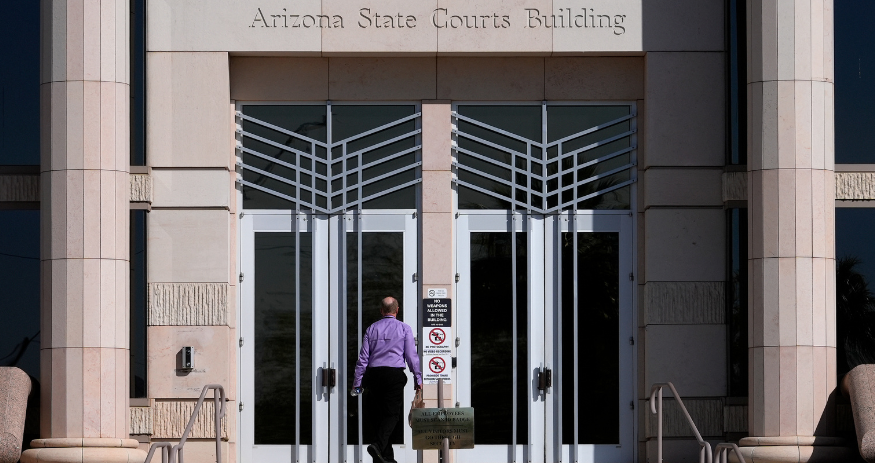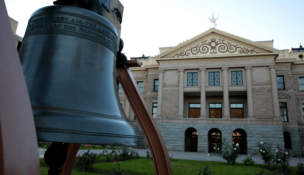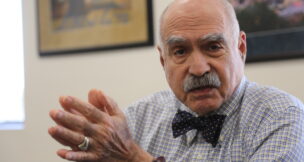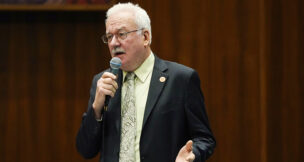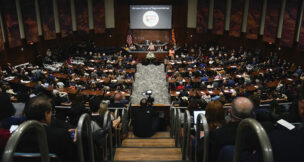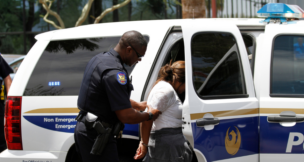AZ Supreme Court upholds decision to count votes for Prop 140
Howard Fischer, Capitol Media Services//October 5, 2024//
AZ Supreme Court upholds decision to count votes for Prop 140
Howard Fischer, Capitol Media Services//October 5, 2024//
Arizonans will get to decide if they want to scrap partisan primaries.
In a brief order Friday, the Arizona Supreme Court refused to block election officials from counting the votes for and against Proposition 140.
The measure already is on ballots. They had to go to the printer in late August to ensure early ballots could be sent out this Wednesday and others were available for on-site voting through election day.
Initiative foes pointed out, however, that there was still no final legal resolution to their argument that there were not actually enough valid signatures on petitions. So, they sought a court order to keep the votes from being tallied.
Maricopa County Superior Court Judge Frank Moskowitz refused, citing three alternate legal reasons why that was not an option. That sent the case to the state’s high court.
In Friday’s order Chief Justice Ann Scott Timmer said the court reviewed the arguments and concluded Moskowitz is correct, dismissing the challenge.
But Timmer did not say which of the three theories she and her colleagues found to be persuasive, saying only that “an opinion explaining the court’s reasoning will follow in due course.”
The measure, if approved, would outlaw public funding for partisan primaries at any level of government where each party gets to nominate candidates for various offices.
In its place would be a single nonpartisan primary where all candidates from all parties – or no party at all – run against each other. And all registered voters could participate regardless of political affiliation.
Then the top two vote-getters, regardless of party, would advance to the general election.
But it also would allow the Legislature to permit up to five candidates to be on the ballot. And in that case, the initiative would require use of a ranked-choice system where voters rate their candidates in order of preference and multiple rounds of counting and elimination could be needed before someone gets to the required 50% and is declared the winner.
Friday’s ruling came despite the legal efforts of the business-oriented Arizona Free Enterprise Club.
Its attorneys presented evidence to Moskowitz that 37,657 signatures on petitions to put Proposition 140 on the ballot were duplicates. Deducting those from the totals that were preliminary found valid by state and local election officials would have left the effort short of the 383,923 valid signatures needed.
Moskowitz, however, concluded that once the ballots went to the printer at the end of August – with the language for Proposition 140 on it – that ended the matter.
Friday’s ruling drew a disappointed reaction from Scot Mussi, president of the Free Enterprise Club.
“Our organization proved that the special interest groups attempting to hijack Arizona’s elections systems lacked the minimum number to qualify for the ballot to even be considered by voters in November,” he said in a prepared statement.
Mussi also charged, though offered no proof, that the backers, operating under the banner of Make Elections Fair, were aware of the duplicates and that their signature-gathering effort had fallen short.
“Yet they obstructed and delayed the review of the duplicate signatures for over a month,” he said, essentially guaranteeing that there would be no final resolution before the ballot printing deadline.
Chuck Coughlin who is managing the Proposition 140 campaign, had a simpler reaction.
“We won,” he said.
Yet to be disclosed is exactly why the Supreme Court decided that voters will get the last word.
Moskowitz, likely anticipating a challenge to his ruling that the printing of the ballots made the whole case moot, included two other legal theories that the justices could use to uphold his decision to give voters the last word.
One goes to that question of whether there were enough signatures.
Backers turned in about 575,000 signatures. But a preliminary review of petitions and signatures by state and local election officials concluded that just 409,474 were valid.
That led foes to hire an outside firm to go through the signatures where, according to testimony presented in court, they found nearly 40,000 were duplicates where people had signed at least twice. Moskowitz said they proved their case for 37,657 of those, a calculation which, on paper, would leave the initiative drive short.
But he accepted the argument by a statistical expert hired by Make Elections Fair that deducting the duplicate signatures after some had likely already been removed by the state and county would amount to “double counting” the bad signatures. He said that was a basis to toss the challenge.
And Moskowitz proffered an ultimate fall-back position. He said even if there really are not enough valid signatures, and even if the ballot printing did not make the case moot, there is nothing in state law that would allow him — or the Supreme Court — to do what the Free Enterprise Club was asking: tell county election officials not to tally the votes for or against Proposition 140 and telling Secretary of State Adrian Fontes not to include the totals in the official state canvass.
Fontes agreed.
In his own legal filing, Fontes, a Democrat, said he is not taking a position on the initiative.
“But it is too late to continue litigating whether this initiative qualifies for the ballot given the fact that ballots for more than half the state, and all information relating to this measure for the publicity pamphlet, have already gone to the printer,” Fontes said through his lawyers from the Attorney General’s Office.
Similar arguments were submitted by Sen. Ken Bennett who formerly was secretary of state, and Helen Purcell who had been the Maricopa County recorder. Both are Republicans.
The latest campaign finance reports show that supporters of Prop 140 have collected more than $6.9 million.
There is $600,000 from Robson Walton who is a former chairman of the board of directors of Walmart who lives in Scottsdale.
David Tedesco, CEO of Outlier, and Robert Bertrand, founder of Concord Servicing Corp., also each gave $500,000. Both also were active in supporting Proposition 211, the successful 2022 measure designed to force the disclosure of “dark money” in campaign spending.
Another $500,000 is listed as coming from Mary Bernal who is listed as a trustee of the Brown Foundations that provide various grants.
And Tucsonan Saran Smallhouse, who chairs the Make Elections Fair Committee, gave $365,00. She is president of the Brown Foundations.
There are not any financial disclosure reports filed by opponents.

